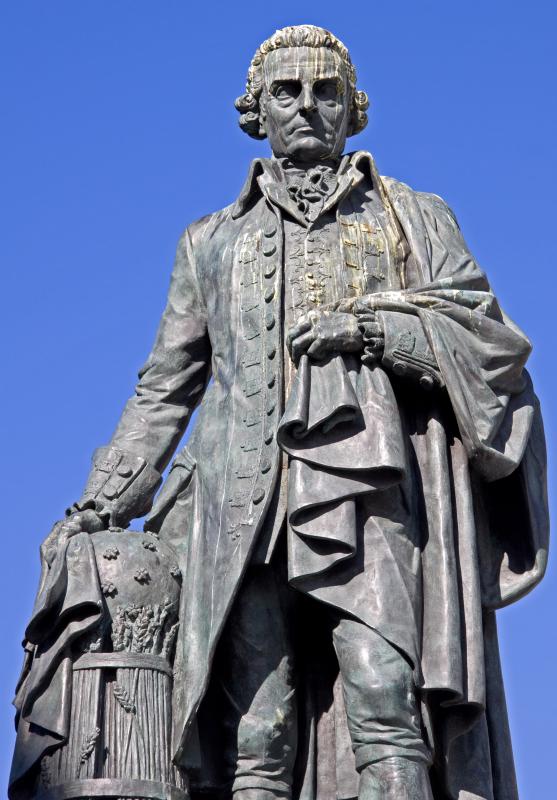At WiseGEEK, we're committed to delivering accurate, trustworthy information. Our expert-authored content is rigorously fact-checked and sourced from credible authorities. Discover how we uphold the highest standards in providing you with reliable knowledge.
What Is Absolute Advantage Theory?
The absolute advantage theory is the belief that a nation will gain the most from producing products that take advantage of its most readily available resources. It is believed that easier access to particular materials, skill sets, and other similar elements will make a country best suited for a specific kind of production. Benefits of this theory can include increased efficiency and cost savings. When a nation has an absolute advantage, it has something that is desirable to other nations, which inspires trade.
According to the absolute advantage theory, out of two or more parties, the one that produces more product with the same resources has the advantage. For example, if two companies each have five employees and one can produce ten units per hour while the other can produce twelve units in the same period, then the second company has the absolute advantage. A nation following the theory of absolute advantage would produce the products that work best with its resources.

One of the most straightforward ways to demonstrate absolute advantage theory is to compare the labor productivities of two nations in a particular area. The absolute advantage will go to the nation that is able to maintain the highest level of productivity. While the factors that contribute to that productivity can vary, the essential theory remains the same.
The theory of comparative advantage is often considered alongside absolute advantage theory. Comparative advantage theory can also be demonstrated with two nations who produce the same item. The country that can produce the item most efficiently may sell it to the country that can make the same product, but at a higher cost. While the first country has comparative advantage because it profits from the sale of the goods, the second country benefits because it costs less to import that product than it does to make it.
The absolute advantage theory was created by Adam Smith in 1776. He discussed the idea in his book An Inquiry into the Nature and Causes of the Wealth of Nations. Smith essentially suggested that a nation with an absolute advantage with a particular product could use the profits from trade to purchase items that other countries could produce more efficiently. His overall argument was that a nation should not hesitate to trade with other countries, because it was foolish to pay more to make something produced domestically that could be purchased for less internationally.
AS FEATURED ON:
AS FEATURED ON:











Discussion Comments
@ddljohn-- You're right, but absolute advantage theory is still very much applicable. I think it's of greater importance in the domestic market. Absolute advantage creates more competition, which is good. It causes firms to constantly look for ways to reduce their costs.
It's true that comparative advantage theory is better for trade, but I wouldn't necessarily say that it's better than other theories.
The reason that the absolute advantage theory is not as favored as it used to be is because it leads to less trade. Absolute advantage theory encourages only producers with an absolute advantage in a good to trade. So, for example, only one manufacturer or one country would produce shoes because it can do it cheaper and more efficiently than anyone else. But this means that other countries will have to produce something else and they have to buy shoes from that country alone.
It is generally accepted that trade is beneficial for everyone, it helps economies grow, it encourages development and gives people access to more goods. Comparative advantage theory allows everyone who can produce a good at a relatively low opportunity cost to do so. So there is more trade, and more growth.
The theory of comparative advantage is superior to the theory of absolute advantage, correct?
Post your comments